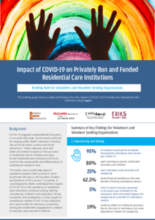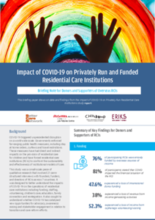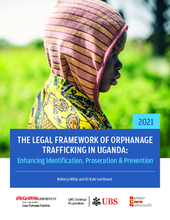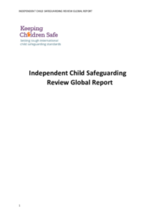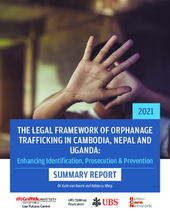Displaying 141 - 150 of 1463
This case study is drawn from the Impact of COVID-19 on Privately Run Residential Care Institutions Study. It presents a summary of the account given by one participant.
This briefing paper draws on data and findings from the report: Impact of COVID-19 on Privately Run Residential Care Institutions: Insights and Implications for Advocacy and Awareness Raising.
This study was a small-scale piece of qualitative research that involved 21 semistructured interviews with founders, funders, and directors of RCIs across 7 countries. It was designed to better understand the impacts of COVID-19 on the operations of residential care institutions including funding, staffing, volunteering, children’s care, education, family connection and reintegration.
This report seeks to examine Uganda’s legal and policy framework to identify the relevant offences and mechanisms that could contribute towards the development of a prosecutorial strategy for orphanage trafficking in Uganda.
This study aimed to assess magnitude and associated factors of undernutrition among children aged 6–59 months in Ethiopian orphanage centres.
The Independent Child Safeguarding Review (ICSR) was commissioned by the International Senate of SOS Children’s Villages to find ways to address the complex topic of child safeguarding failures. The report sets out consolidated findings and recommendations from four country reviews with the aim of contributing to improvements in safeguarding practice.
This study assesses and maps the legal, policy and procedural frameworks in both domestic and international law across Nepal, Uganda and Cambodia, where orphanage trafficking continues to undermine domestic efforts to stem the overuse of institutionalisation of children.
The article analyzes the results of a sociological study of the prospects for improving the system of social protection of graduates of institutional institutions in Uzbekistan.
เอกสารสรุปนี้ดึงข้อมูลและผลการวิจัยจากรายงาน: ผลกระทบของ COVID-19 ต่อสถาบันการดูแลที่อยู่อาศัยที่ดำเนินการโดยเอกชน: ข้อมูลเชิงลึกและนัยสำหรับการสนับสนุนและการให้ความรู้
This article explores mental health related issues in children and adolescents in childcare institutions in Sri Lanka.


